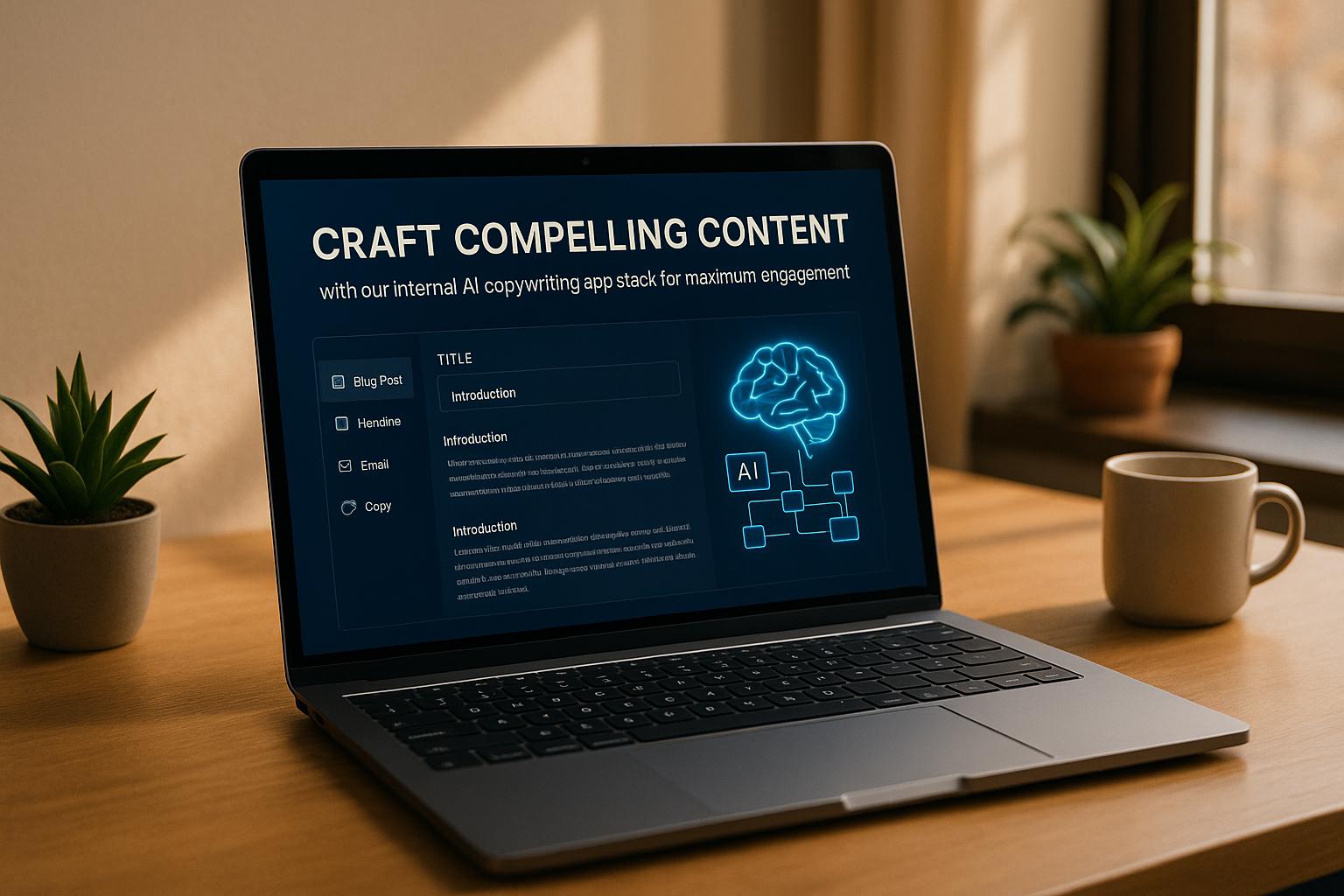The retail industry is rapidly adopting AI tools to improve operations like inventory management, customer service, and sales tracking. With the AI market in retail projected to grow from $9.85 billion in 2022 to $40.49 billion by 2029, businesses are under pressure to modernize. Key challenges, such as $112.1 billion in retail shrink and $110 billion in internal theft losses in 2022, highlight the need for smarter, automated solutions.
Here’s what you need to know:
- AI tools optimize inventory, streamline customer service, and provide real-time sales insights.
- By 2025, 68% of retailers aim to implement AI for supply chains and inventory.
- AI Apps simplifies finding retail-specific AI tools with over 1,000 verified options and advanced filters.
- Popular tools like Personal AI, Extend Commerce, and Rep AI focus on automation, analytics, and customer engagement.
Quick Comparison of Top Tools
| Tool | Focus | Pricing | Best For |
|---|---|---|---|
| Personal AI | Automation & Analytics | Custom Pricing | Mid-size retailers |
| Extend Commerce | Unified Dashboard | Subscription | Multi-channel retailers |
| Rep AI | Conversational Commerce | Usage-based | High customer interaction |
Choose tools based on your biggest challenges, budget, and team expertise. Platforms like AI Apps make this process simpler by consolidating options and enabling side-by-side comparisons.
Key Factors to Consider When Choosing AI Workflow Tools for Retail
Integration with Retail Systems
AI workflow tools are designed to connect essential retail systems - like POS, ERP, CRM, and inventory management software - into one cohesive and intelligent network. This integration ensures these tools work together smoothly, streamlining operations across the board. Additionally, it's crucial to evaluate how these tools handle data privacy and meet regulatory standards, as these factors play a key role in creating a fully integrated and compliant workflow.
7 Proven AI Systems Giving Ecommerce Stores an Edge in 2025
AI Apps: A Central Platform for Finding Retail AI Tools
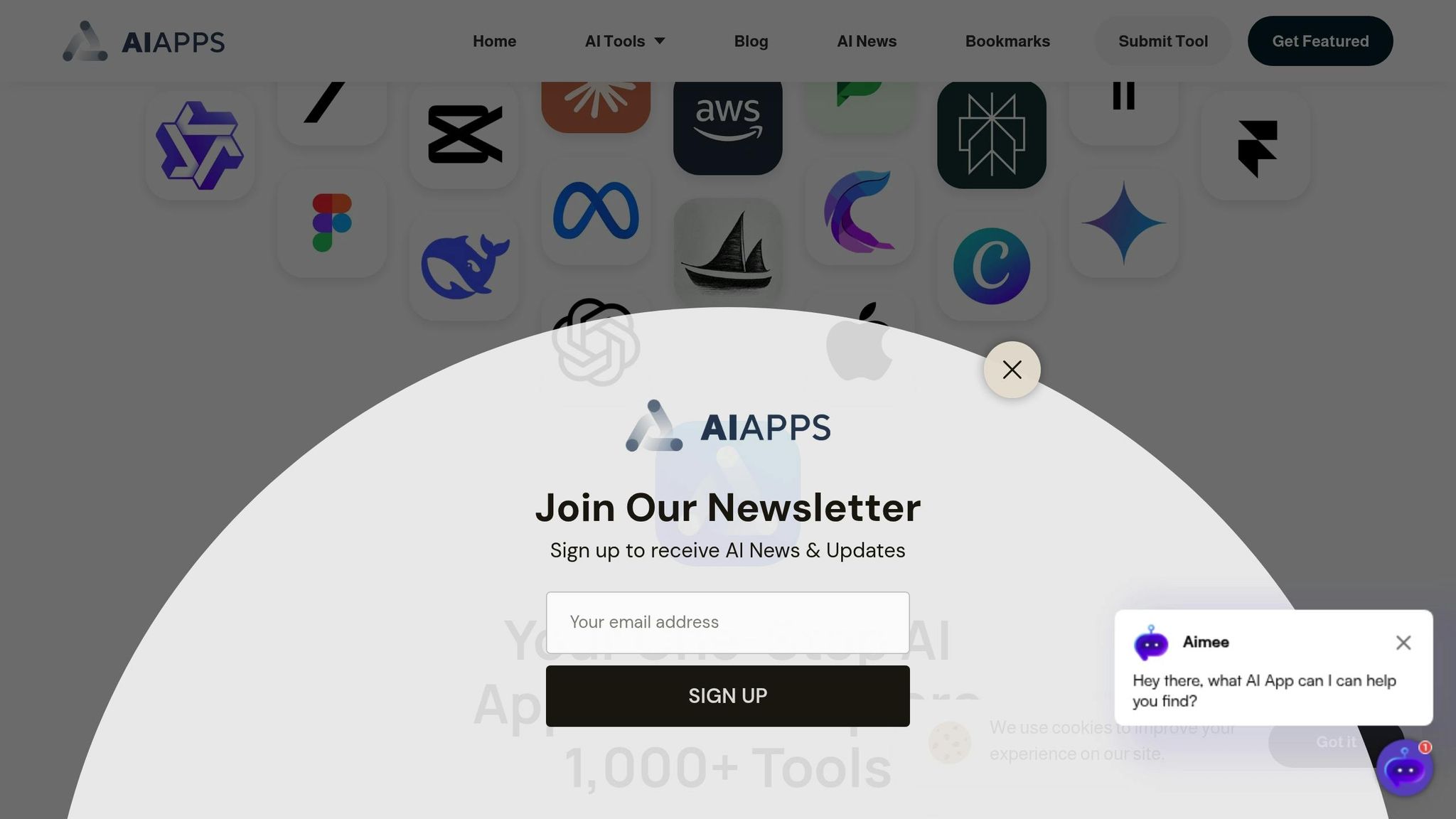
Navigating the sea of AI tools for retail can feel overwhelming, but AI Apps simplifies the process by offering a platform with over 1,000 verified AI tools. This one-stop hub is tailored to help retail businesses easily find and compare solutions designed specifically for their operations. By bringing everything into one place, it streamlines the journey from research to implementation.
The platform's user-friendly structure ensures that retail managers can quickly identify the tools they need without the usual trial-and-error process. It’s all about cutting through the noise and getting straight to the solutions that work.
Retail-Specific Categories and Filters
To make searches even more effective, AI Apps includes advanced filters tailored to retail needs. Tools are neatly organized into categories that address critical areas like inventory management, customer service, and sales tracking - the backbone of retail success.
Retailers can refine their search by category, such as AI chatbots for improving customer service or analytics tools for better inventory control. Pricing filters further simplify the process, allowing users to distinguish between free and paid options. These targeted filters help retail businesses quickly zero in on the tools that can take their operations to the next level.
Why a Curated Directory Matters
A curated directory takes the guesswork out of decision-making. With features that allow side-by-side comparisons of tools, retail teams can evaluate options based on functionality, pricing, and other key details - all within a single platform. This saves weeks of research and ensures informed choices, especially when comparing tools with varying features or costs.
The platform also highlights newly launched and featured tools, keeping retailers up to date on the latest advancements in AI automation. In a fast-moving industry like retail, staying informed about cutting-edge solutions is a game-changer.
For businesses ready to adopt AI tools, AI Apps also offers a submission feature for tool developers. This ensures the directory continues to grow with relevant and innovative solutions, making it a resource that retail managers can rely on as their needs evolve over time.
sbb-itb-212c9ea
Top AI Workflow Tools for Retail Operations
Retail operations rely heavily on efficient workflows and accurate data insights to stay competitive. The tools below build on the advantages of AI applications, helping retailers streamline everything from inventory management to customer engagement and sales tracking.
Personal AI
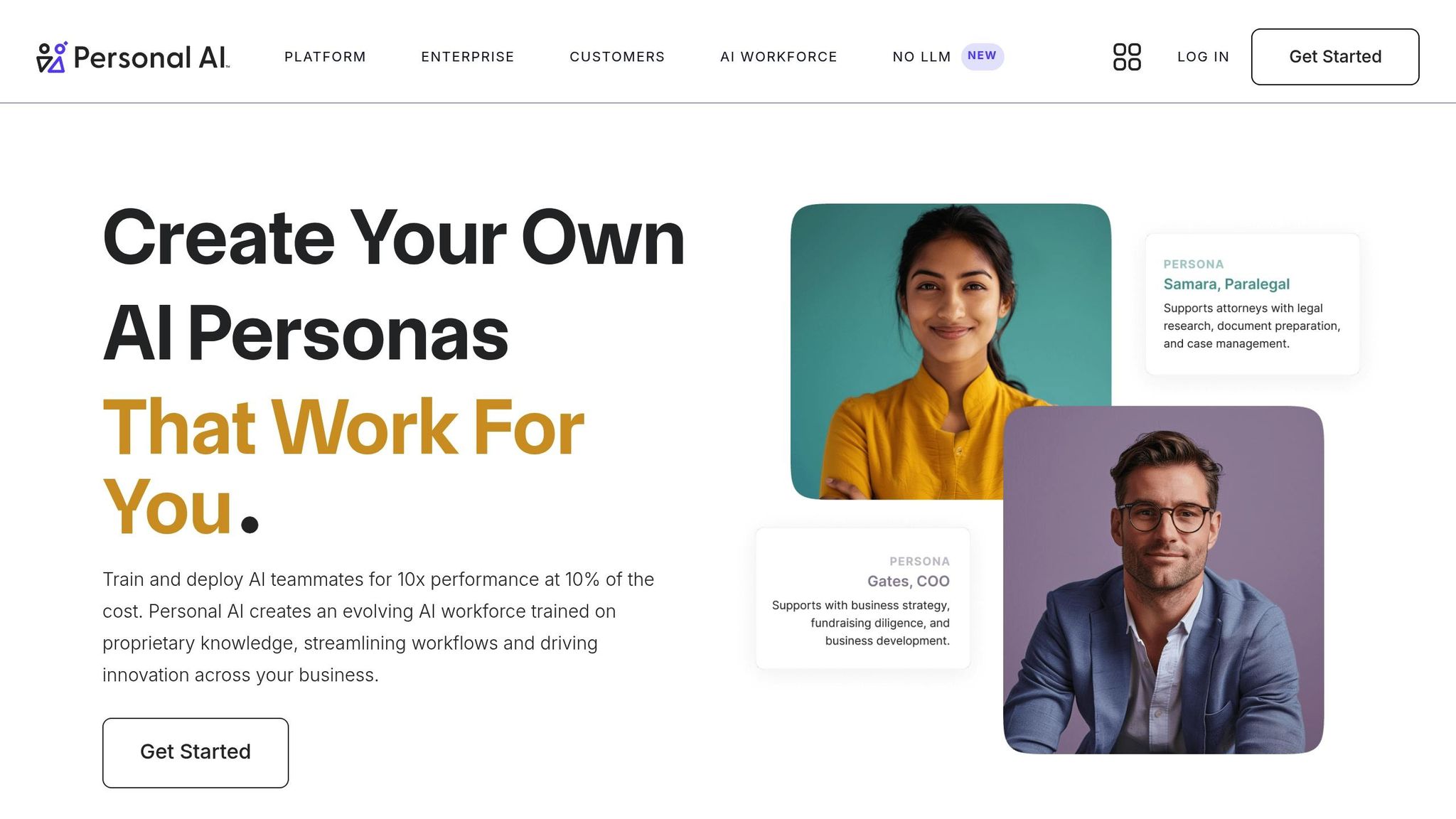
Personal AI is designed to simplify retail operations through automation and analytics. It integrates seamlessly with existing retail systems, offering insights that improve inventory management and enhance customer engagement strategies.
Extend Commerce
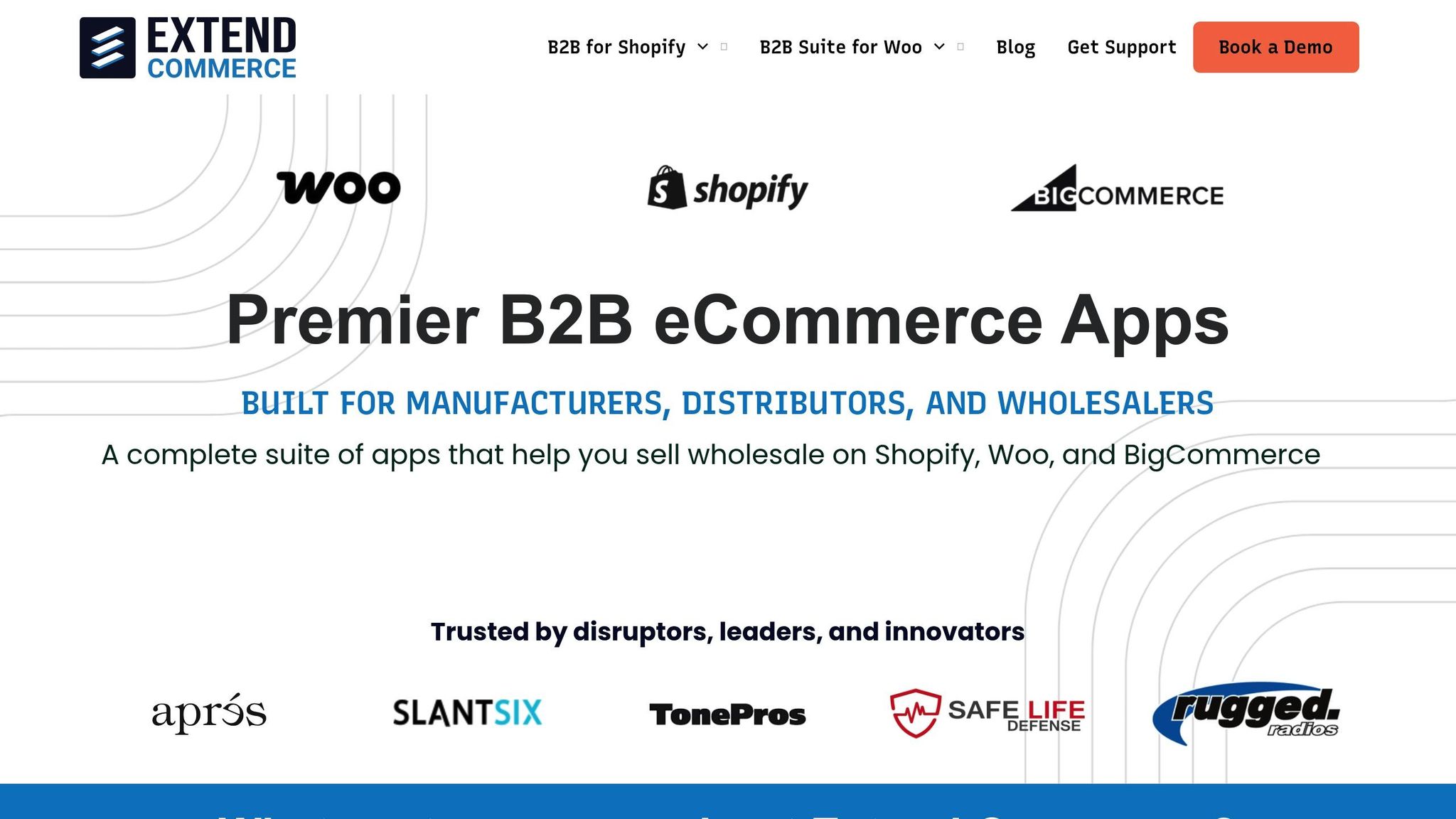
Extend Commerce brings automation to retail by combining inventory, sales, and customer service into one unified dashboard. With customizable workflow triggers, it automates repetitive tasks and provides analytics to track sales performance and identify trends.
Rep AI
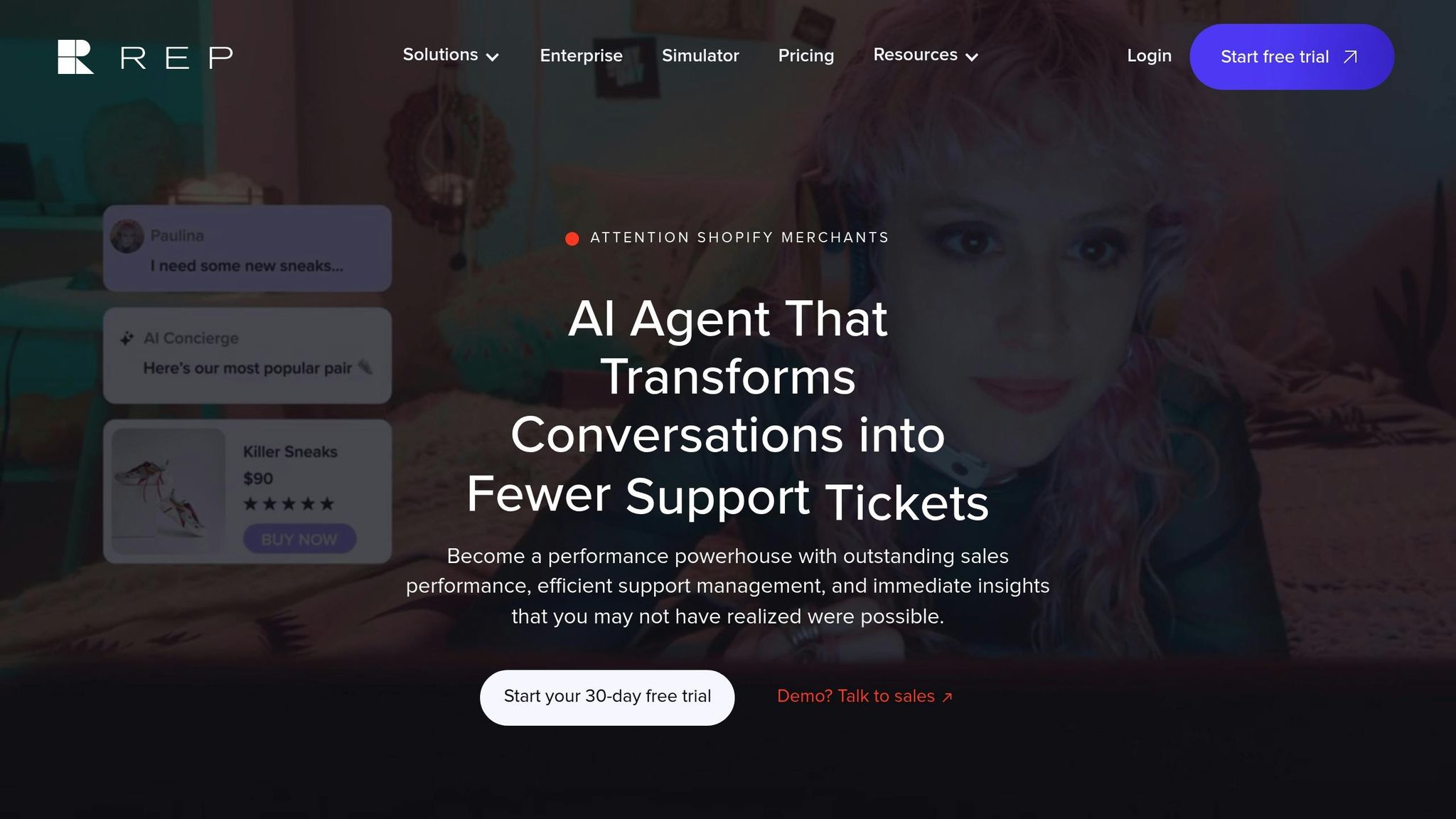
Rep AI focuses on autonomous sales and customer support for e-commerce. Using conversational AI, it handles customer inquiries and processes orders while adapting to individual interactions. The platform also integrates with major e-commerce systems and includes analytics to measure customer engagement and conversion rates.
Domo
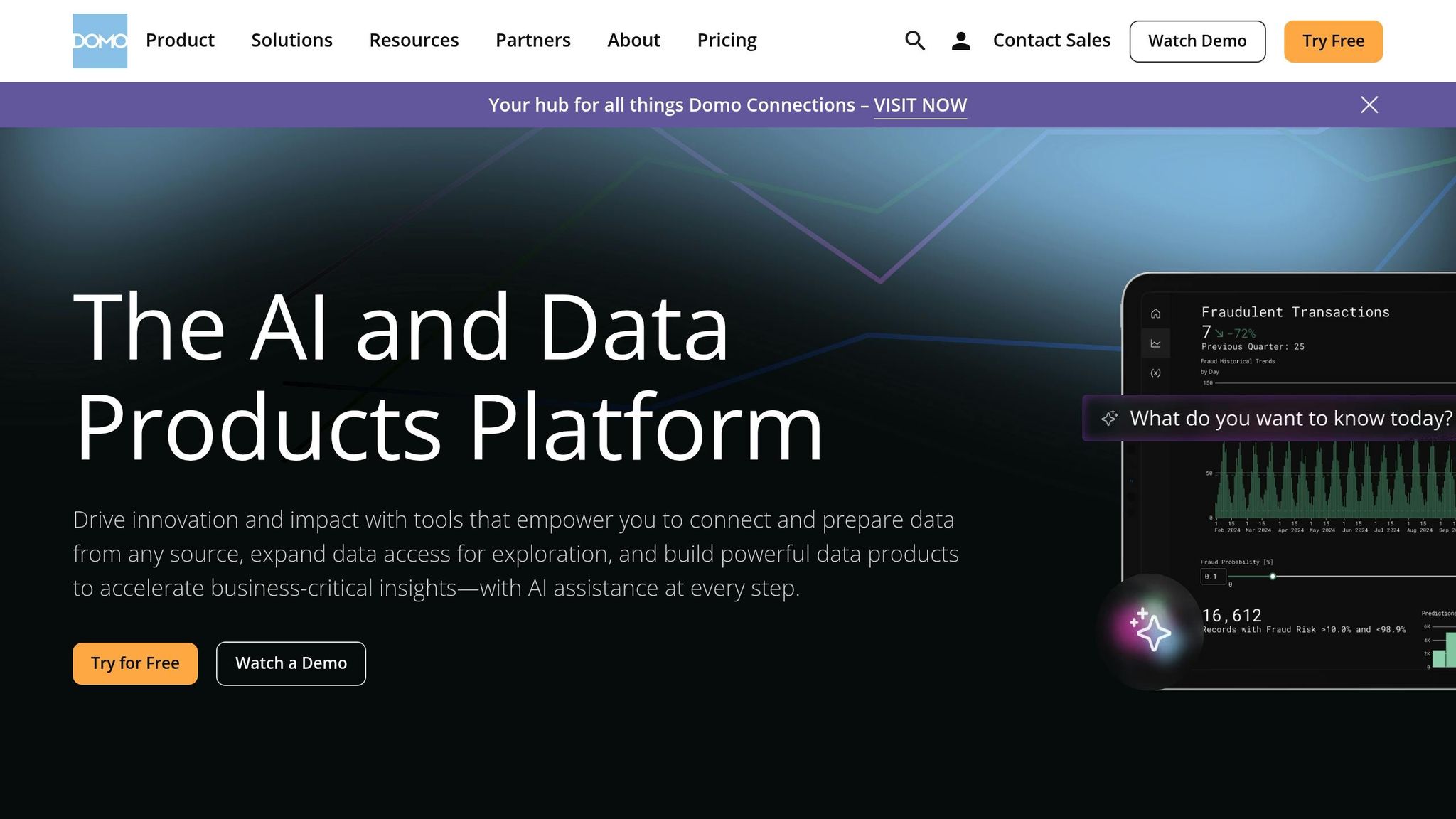
Domo offers AI-driven data visualization and workflow automation for retail. It pulls data from multiple sources to create real-time dashboards and automated reports, allowing retailers to monitor performance and address challenges quickly.
Zenphi
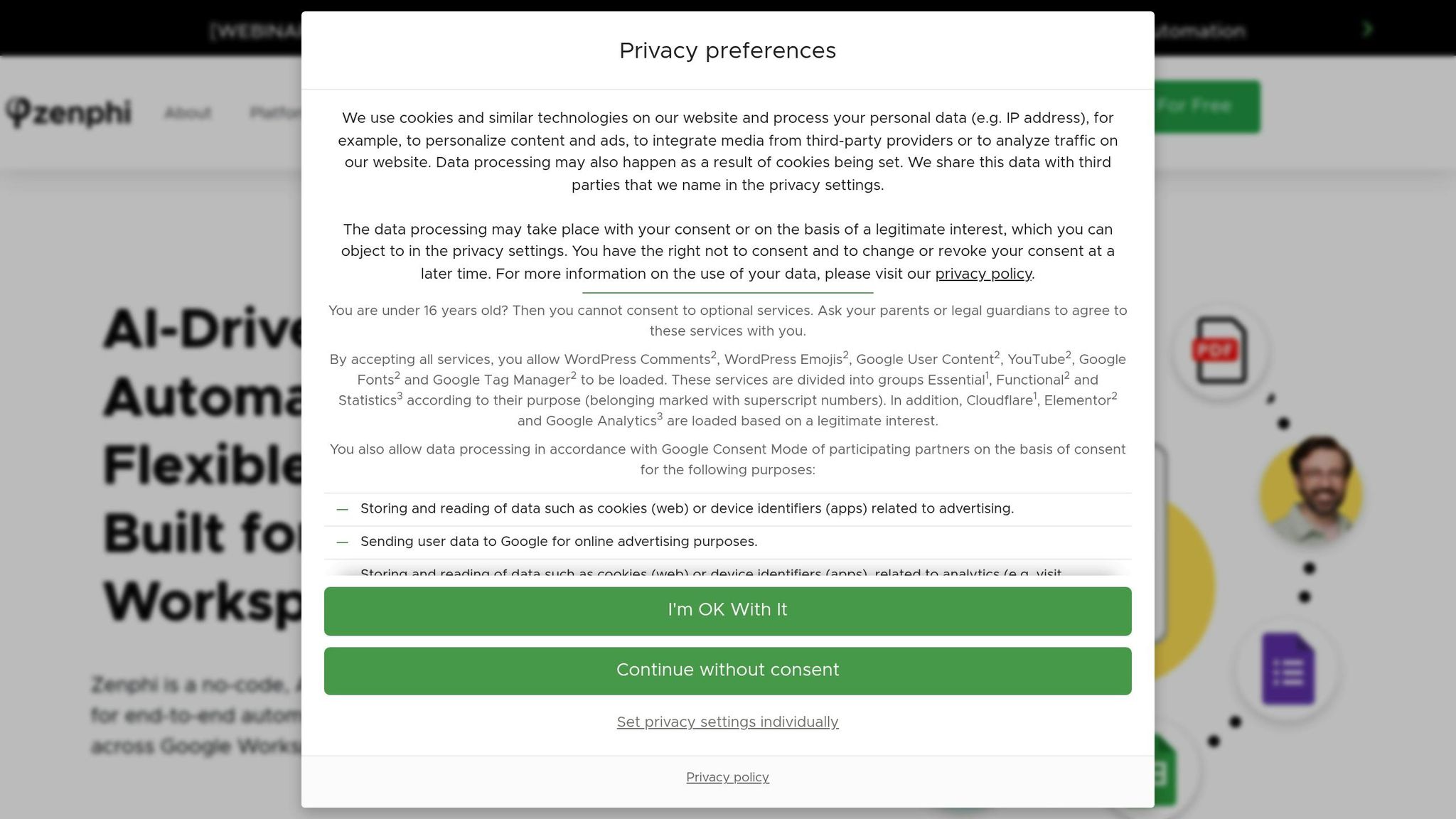
Zenphi specializes in automating routine business processes within retail. Its intuitive workflow designer supports custom automations, while its integration features ensure smooth data sharing across different retail platforms.
Comparison of Leading AI Workflow Tools for Retail
When choosing AI workflow tools for retail, it's crucial to assess factors like workflow focus, pricing, integration capabilities, U.S. compliance, scalability, and ease of use. Below is a comparison table that highlights these aspects for a quick overview.
Comparison Table
| Tool | Primary Focus | Key Features | Pricing Model | Integration | U.S. Compliance | Best For |
|---|---|---|---|---|---|---|
| Personal AI | Automation & Analytics | Simplifies retail workflows and delivers insights | Custom pricing | Easily integrates with retail systems | Meets standard compliance | Mid-size retailers |
| Extend Commerce | Unified Dashboard | Automates inventory, sales, and service processes | Subscription-based | Works with popular retail platforms | Compliant with U.S. standards | Multi-channel retailers |
| Rep AI | Conversational Commerce | Uses conversational interfaces for sales and orders | Usage-based pricing | Tailored for online sales channels | Built to U.S. compliance standards | Retailers with high customer interaction |
| Domo | Data Visualization | Offers real-time analytics and consolidates data | Tiered subscription | Includes multiple pre-built connectors | Meets stringent compliance | Enterprise retailers |
| Zenphi | Process Automation | Enables custom workflows and automates routine tasks | Per-user licensing | Compatible with common business suites | Meets U.S. compliance standards | Small to medium retailers |
Key Considerations
Pricing Models: Options range from custom pricing and subscription-based plans to usage-based and per-user fees. Choose a model that aligns with your budget and operational needs.
Integration Capabilities: Some tools are designed for enterprise-level complexity, offering robust data handling and connectivity. Others are better suited for small to medium-sized businesses. Think about your current setup and future scalability when evaluating integration options.
User Experience: Tools differ in usability. Some provide simple, intuitive interfaces that require little training, while others focus on advanced analytics, which might demand more technical expertise. Consider your team’s capabilities and the importance of quick deployment when making your decision.
Choosing the Right AI Workflow Tool
Selecting the right AI workflow tool means finding one that aligns with your retail challenges, budget, team capabilities, and future goals.
Start by identifying your biggest pain points. For example, if managing inventory is a hurdle, focus on tools that specialize in demand forecasting and stock optimization. If customer service is overwhelming your team, look into conversational AI solutions that handle routine inquiries efficiently. For retailers struggling with disconnected data, prioritize tools that provide strong analytics and visualization capabilities.
Think about the total cost of ownership - not just the subscription fee. This includes training, setup, and transition expenses. For instance, a subscription-based tool like Extend Commerce offers predictable monthly costs, while usage-based pricing from solutions like Rep AI might be more budget-friendly for businesses with seasonal demand. A tool that costs $500 per month but requires three months of training could end up costing more than a $1,000 per month solution that works right out of the box.
Match the tool’s complexity to your team’s skill set. Some platforms, such as Zenphi, require technical expertise to customize workflows, while others are designed to be plug-and-play. If your team lacks technical resources, investing in a complex tool could mean paying for features you’ll never fully use.
Ensure compatibility with your existing systems. Integration issues can be costly, leading to expensive workarounds or even forcing system changes. Retailers often discover these limitations too late, so it’s critical to evaluate how well a tool fits into your current setup before making a purchase.
To simplify the selection process, consider using a centralized platform like AI Apps, which hosts a curated collection of over 1,000 AI tools across various categories. With advanced filtering options, you can narrow down your choices by category, sub-category, and pricing model - all in one place. Instead of jumping between dozens of websites and piecing together scattered information, AI Apps allows you to compare multiple retail AI solutions efficiently.
What’s more, the platform’s multi-step verification process ensures that every listed tool meets quality standards, reducing the risk of investing in unreliable solutions. For busy retail managers, this kind of streamlined approach is a game-changer, making it easier to discover and evaluate new technologies without feeling overwhelmed by the sheer number of options out there.
FAQs
How do AI workflow tools help prevent retail shrink and reduce theft losses?
AI workflow tools play a crucial role in tackling retail shrink and minimizing theft-related losses. With AI-driven surveillance systems and computer vision technology, these tools can keep an eye on store activity in real time, flag high-risk products, and spot potentially suspicious behavior. When something unusual is detected, instant alerts are sent out, allowing staff to act quickly and potentially prevent theft before it happens.
On top of that, AI tools can analyze trends in inventory shrinkage and employee activity, offering insights that help retailers address internal theft and strengthen security. These solutions not only safeguard profits but also streamline day-to-day operations, making retail environments more secure and efficient.
What should retailers consider when integrating AI tools into their existing systems?
When bringing AI tools into retail systems, it's crucial to make sure they work seamlessly with your existing setup, particularly older legacy systems, to prevent any operational hiccups. Keep a sharp focus on data quality and security measures to safeguard sensitive customer details and business information.
It's also wise to design for scalability so your system can handle growth and tackle technical hurdles like performance slowdowns or latency. Equally important is preparing your team - invest in training and change management to ensure a smooth adoption process and get the most out of your AI investment.
How does AI Apps help retailers choose the best AI tools for their operations?
AI Apps simplifies the process for retailers to discover the perfect AI tools by offering a thoughtfully organized collection of over 1,000 options. With advanced filtering features, users can sort tools based on categories, specific functionalities, or pricing, making it easier to pinpoint solutions that align with their unique requirements.
The platform takes the guesswork out of decision-making by offering detailed comparisons and integration possibilities. This helps retailers improve areas like inventory management, customer service, and sales tracking - all without spending endless hours on research.
